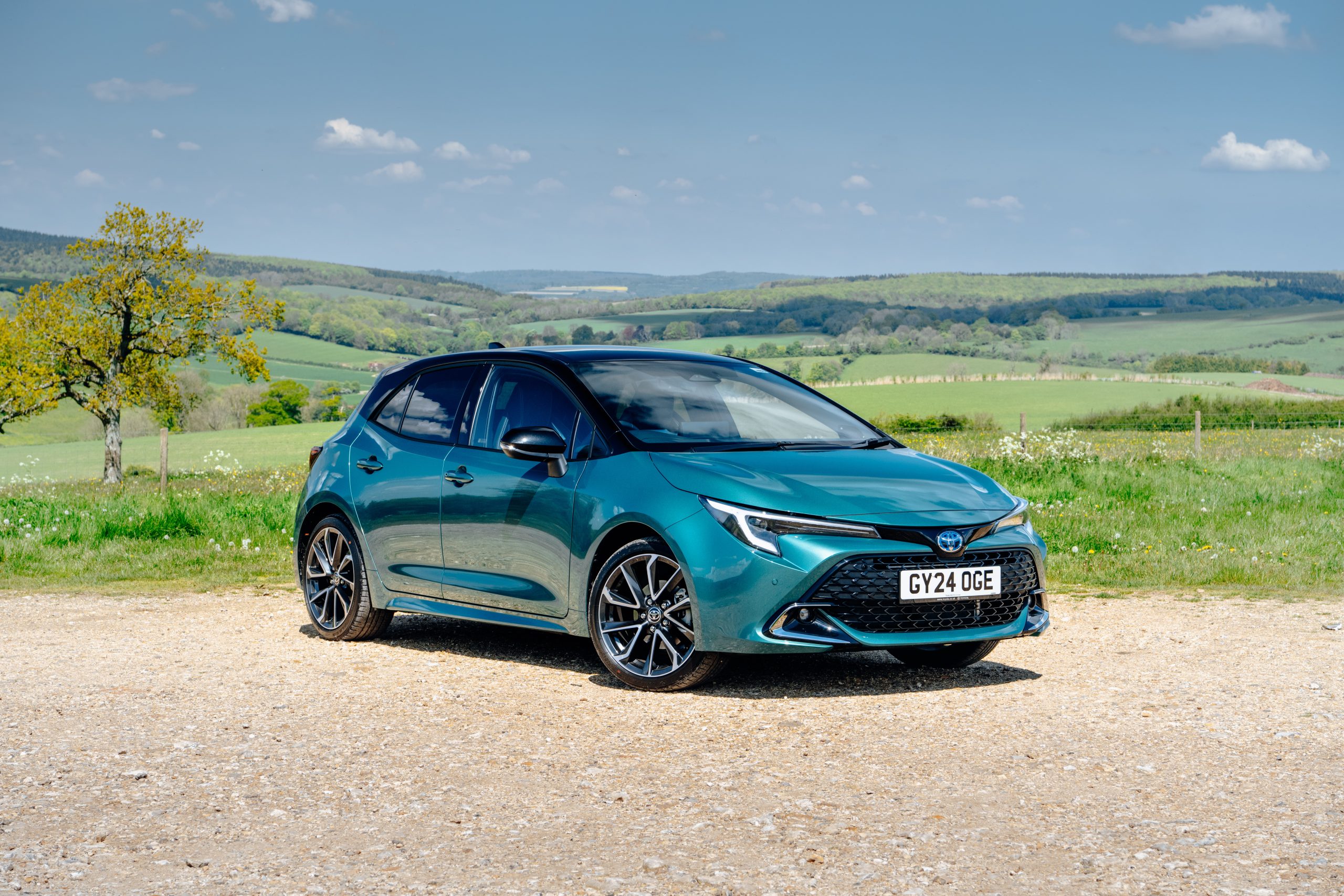What do I need to know about hybrid vehicles?
Hybrids have become one of the most popular choices among buyers, but what do you need to know before you buy one?

Hybrid vehicles could offer the best of both worlds when it comes to everyday driving.
They offer the convenience of a petrol or diesel car, with the cheaper running costs and lower emissions associated with EVs.
Their petrol engines with electric motors make town driving smooth and efficient, while providing enough power and performance out on the open road.
So, if you’re thinking about buying one, what do you need to know?
We’ve compiled a list of what hybrid vehicles have to offer.
What is a hybrid?

Some of the biggest problems that electric cars face include range, charging infrastructure and price – which could affect how easy an EV is to live with.
However, that’s not something you need to worry about with a hybrid vehicle.
A hybrid comes fitted with an internal combustion engine mated to an electric motor. The petrol or diesel engine is used to power the car at higher speeds, but then acts as an on-board generator for the electric motor to be used at lower speeds around town.
All of this helps reduce CO2 emissions, improve fuel economy and makes the car a lot cheaper to run. Plus, there is no need to worry about charging the car up, as you simply top up with petrol or diesel when it’s running low – just like a conventional car.
They can be cheaper to run

Strapping an electric motor to a car always helps with reducing its running costs.
For example, a Toyota Corolla Hybrid comes equipped with either a 1.8-litre or 2.0-litre petrol engine mated to an electric motor.
In terms of efficiency, Toyota claims that the former can achieve up to 64.1 mpg on the combined cycle and has CO2 emissions as low as 100g/km. The latter can manage a claimed 60.1 mpg and pumps out 107g/km of CO2.
In comparison, a Vauxhall Astra 1.2-litre turbocharged petrol does a claimed 50.4 mpg on the combined cycle and has CO2 emissions of 126g/km.
This makes the Toyota cheaper on road tax and it should be able to go further between trips to the pump.
What is a mild-hybrid vehicle?

A mild-hybrid (MHEV) is a conventional petrol or diesel car that comes fitted with a small battery and electric motor to help assist the combustion engine.
A lot of MHEVs have a 48-volt battery on board to help boost power, but enable the car to coast at speeds of around 10 mph on the battery. Unlike a regular hybrid, you can’t drive a MHEV purely on electric power, but it can help boost acceleration and a lot of vehicles that feature this technology come with manual transmissions – something that isn’t commonly seen on regular hybrids.
What are plug-in hybrids?

A plug-in hybrid vehicle (PHEV) comes with an combustion engine mated to an electric motor, but also benefits from a battery pack – just like an EV.
A PHEV is similar to a regular hybrid car as it can transition between petrol or electric depending on the speed of the vehicle, but the addition of the battery pack enables the car to travel a certain distance purely on electric power.
For example, there are several vehicles on the market that are available with a PHEV option. The latest Volkswagen Golf PHEV comes fitted with a 19.7kWh battery pack on board, enabling the car to travel a claimed 89 miles on electric power.
However, in order to make the most of the electric range, a PHEV will need to be plugged into an EV charger, whether it’s a home or a public device. Depending on the make and model, some cars will take longer than others to top up through AC slow chargers or DC rapid units.
PHEVs are seen as a stepping stone towards EV ownership, as they provide the ease of a conventional petrol or diesel with regular hybrid running costs. But, they also offer zero tailpipe emissions for a substantial distance like an electric vehicle.
Who makes the best hybrids?

In recent years, many car manufacturers have jumped onto the hybrid bandwagon, but the car company that kick-started it all was Toyota.
It produced its first hybrid model back in 1997 with the original Prius hatchback, and ever since has been perfecting the technology to make its cars the best on the market.
Its latest hybrids can now do a claimed 80mph on purely electric power – when there is sufficient charge in the battery.
Other firms that come with impressive hybrid powertrains are Hyundai and Kia. They offer several models with a petrol-electric set-up and are good for those who want comfortable and efficient family cars that provide decent performance with a smooth powertrain.
They can be expensive to buy

One drawback to hybrids is their initial purchase price, which can exceed that of their equivalent petrol or diesel counterparts.
For example, a basic Hyundai Tucson petrol starts from £33,080, whereas the hybrid model comes in at £36,220, and the plug-in hybrid model is even more costly at £39,385.
Should you buy one?

If you do a lot of miles and you want to save money on a day-to-day basis, hybrids make a lot of sense.
They are easy to live with, come with plenty of performance and are quiet and relaxing around town.
However, they can be expensive to buy and the question you need to ask yourself is – do I do enough miles to offset the initial higher cost of the car? If you do, then hybrids are a sensible choice, but for others, a mild-hybrid could be the perfect solution as they are similarly priced to conventional petrol and diesel models, while still benefiting from lower running costs.





